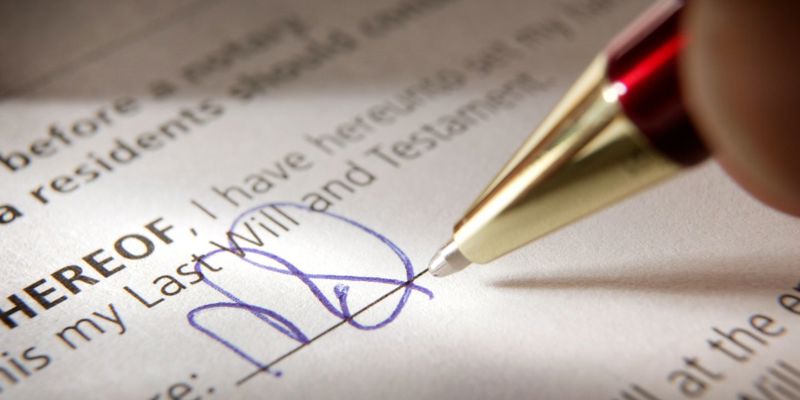
Winning with a will—the importance of creating a valid will
Partner Gareth Ledsham and trainee Mollie Evans explore the critical importance of creating a valid will, highlighting how failing to comply with the necessary legal requirements can lead to unintended consequences for your estate and loved ones.
In the game of life, complying with the rules for your final move is crucial. Creating a valid will ensures that your estate is distributed according to your wishes after your death. Many players overlook this important step, which can lead to outcomes that do not reflect their true intentions and can trigger unnecessary tax consequences.
Section 9 of the Wills Act 1837 sets out the key rules to be followed to create a valid will:
- your will must be in writing
- you must sign the will
- your signature must be witnessed by at least two other people who are present at the same time
- the witnesses must sign the will in your presence
In the case of Burgess v Penny & Anr. [2019], the will appeared to have been duly executed, however, one of the witnesses had not seen the deceased or the other witness sign the will. Accordingly, the will was found to be invalid and the deceased died intestate.
Understanding the rules of intestacy is crucial, as they come into play if you do not leave a valid will.
The rules of intestacy
If a person dies without making a will, the law deems that they have died intestate and their estate will be distributed according to the rules of intestacy, governed by the Administration of Estates Act 1925 (as amended).
The intestacy rules establish a priority order of inheritance, starting with a spouse or civil partner, followed by children, parents, siblings, and then other blood relatives. If no blood relatives are found, the entire estate passes to the Crown.
It is important to note that enter a marriage or civil partnership automatically revokes an existing will and the estate will be distributed with under the intestacy rules.
The position for married couples
Many married couples mistakenly believe that if one spouse dies without a will, the surviving spouse automatically inherits the entire estate. This is not the case if the deceased has surviving children. Under the rules of intestacy, the surviving spouse receives a statutory legacy of £322,000 and 50% of the remainder of the estate. The remaining 50% is divided equally among the children.
Assets passing to spouses are exempt from Inheritance Tax. Crucially, assets passing to children are not eligible for the spouse exemption under the Inheritance Tax Act 1984. The value of assets not passing to a spouse may fall within the nil-rate band (currently £325,000) which is charged to tax at 0%. On the death of the second spouse, the unused nil rate band can be transferred to the estate of the second spouse. This effectively doubles the tax-free allowance on the second death. However, the share of the estate which passes to the children on intestacy is immediately subject to Inheritance Tax at a rate of 40% on the amount exceeding the nil-rate band, (unless specific reliefs apply), potentially creating a significant tax burden.
In such circumstances the surviving spouse may find themselves in a difficult financial position and may be required to bring a claim under the Inheritance (Provision for Family and Dependants) Act 1975 (the Inheritance Act) against the estate.
Such claims require the court to determine whether reasonable financial provision has been made and the court has wide powers to decide what order to make. Litigation under the Inheritance Act is inherently uncertain and can be a lengthy, emotional and costly process.
The position for unmarried couples
For unmarried couples, the consequences of dying without a will can be particularly devastating. It is a common misconception that the law recognises a ‘common law spouse’ after a certain period of cohabitation. However, no such legal status exists in England. Under the rules of intestacy, regardless of how long a couple have cohabited, the surviving partner has no automatic entitlement to the estate.
In this scenario, if the deceased has children, then they will inherit the entirety of the estate. If the deceased has no children, the intestacy rules determine which relatives will benefit. This will not include cohabiting partners or unadopted step-children.
The surviving partner may therefore receive nothing from the estate unless assets were jointly owned, for example joint bank accounts or property held as joint tenants. This could result in financial hardship, especially if they relied on the deceased for financial support or housing. In certain circumstances, the surviving partner may be forced to vacate the home they both lived in.
While the partner may bring a claim under the Inheritance Act, a non-spousal claim under the Inheritance Act is limited to the provision of maintenance, and providing evidence of financial dependency can be challenging and intrusive.
Additionally, the process is adversarial and may lead to conflict with other beneficiaries, such as the deceased’s children or other relatives.
Joint tenants
If a couple own property as joint tenants, the surviving partner automatically receives the deceased partner’s share on their death, under the rule of survivorship.
If both partners die simultaneously, the law assumes the younger partner dies last, so the older partner’s share goes to the younger partner’s estate. Therefore, if a person wishes for their interest in a property to form part of their estate and to gift it to someone in their will, they must ensure that the property is owned as tenants in common. It is possible to sever a joint tenancy, to ensure that half the property passes under the terms of the will, not automatically by survivorship.
Can action be taken after death?
It is possible to adjust the distribution of assets post-death, through a Deed of Variation. This allows beneficiaries to alter how the estate is divided, provided that all those affected agree.
However, complications arise if the beneficiaries include minors (aged under 18 years), as any variation would require court approval under the Variation of Trusts Act 1958. This process involves the appointment of a litigation friend for the minor and an application to the court, making the process more complex, expensive and time consuming.
Summary—where there’s a will there’s a way
Failing to comply with the rules to make a valid will can cause unintended and costly consequences for your loved ones. Married couples may face unnecessary tax liabilities, while unmarried couples have no automatic entitlement to their partner’s estate.
Resolving these issues after death is often complicated and expensive. Therefore, seeking legal advice to prepare a valid will is essential and ensures you can control how your assets are distributed, protecting your loved ones from financial strain and legal disputes.
Gareth Ledsham is a partner in the trust and estate disputes team, acting for both claimants and defendants on the full range of contentious trust and probate matters, including wills. Mollie Evans is a trainee currently in the trust and estate disputes team.

30.10.2024
Private client team news and updates—October 2024
In this edition of our private client newsletter, our team shares insights to help you make informed decisions for your loved ones, from lifetime gifting to estate planning...
Get in touch
If you would like to speak with a member of the team you can contact our trusts wills estate disputes solicitors by email, by telephone on +44 (0)20 3826 7530 or complete our enquiry form.










